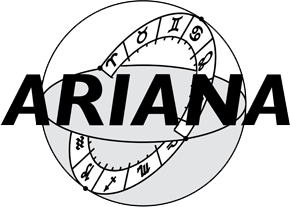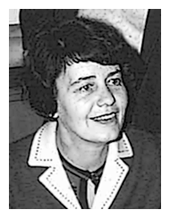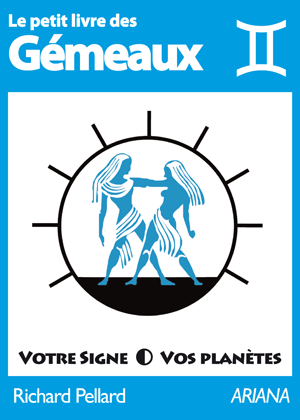Your Planets
Portraits of the Planets
Aspects between Planets
The planetary ages
The planetary families
Planets in Signs
The Planets in comics


In 1955, the psychologist Michel Gauquelin published The influence of the stars. In this book, he reports on the results of his statistical surveys on astrology which, since 1951, he has carried out with his wife Françoise. Although these two statisticians do not show much confidence in astrological traditions, their work shows that the character displayed by the most eminent members of different occupations is related to the planetary positions in the local sphere: depending on the profession studied, certain planets are more frequently present in the zone of their rising and setting (Ascendant and Descendant), of their upper and lower culmination (Midheaven and Imum Coeli) for some “professionals” than for others. Thus Mars is very frequently angular in athletes, Jupiter in actors, and Saturn in scientists. Needless to say, such statistical observations have turned official science upside down. One of his mandarins-marabouts at the time, Jean Rostand, did not hesitate to declare at the time that “if statistics prove astrology, I no longer believe in statistics”! Which proves that anti-astrology drives people crazy… Since the death in 1991 of Michel Gauquelin, his ex-wife Françoise Scheider-Gauquelin continues their common work. Like him, she has never sought to approach astrology under a another angle than that of the statistical study, which she considers, rightly or wrongly, to be the only valid method for scientifically demonstrating the astrological fact.
.png)
.png)
.png)
 Richard Pellard: What is your assessment of your statistical surveys on astrology, after nearly half a century of research? You have had to face up to skepticism, the sometimes honest, sometimes tendentious second opinions, and the bad faith of the anti-astrologers academics. Can you tell us about it?
Richard Pellard: What is your assessment of your statistical surveys on astrology, after nearly half a century of research? You have had to face up to skepticism, the sometimes honest, sometimes tendentious second opinions, and the bad faith of the anti-astrologers academics. Can you tell us about it?
Françoise Gauquelin: I may disappoint you, but I consider such problems to be absolutely normal. You yourself, imagine that you have, after much effort, reached the enviable rank of professor at the College de France. You would thereby have become accustomed to being adored by your students, especially those who are still at the age when adult role models are sought to be admired unconditionally. This is a flattering role much sought after by ambitious academics. How could they easily accept that unknown young people without university titles comparable to theirs arrogate the right to publish results quite inexplicable for a classical scientist, such as the angular position of Mars at the birth of sports champions predicting their sports success, for example? And not only are these results not easily explained by our current astronomical knowledge, but worse: they are strongly reminiscent of certain axioms of astrologers. A reaction of violent rejection, without any examination of the statistical evidence provided, obviously does not seem worthy of a true scientist. But isn’t it normal for someone who has worked for years to impose his intellectual dominance at the highest university levels? Let’s be realistic. We observe these struggles, these violent reactions of rejection in all organized societies, whether human or animal. I obviously find it very sad that Michel’s strongly jupiterian temperament pushed him to tirelessly harass the little males well in place at the University with our statistical results that they could not refute. Michel chose to take his own life rather than accept their scientifically unjustifiable tyranny. He thus deprived himself of many years of exhilarating research that I can no longer share with him, alas. Everyone has their own requirements, of course. It is not for me to judge which of us has chosen better than the other: Michel going to the end of his convictions and disappearing with panache when he saw himself unjustly rejected by all the pundits in place? Or myself continuing the research without stopping, to firmly anchor in everyone’s mind the demonstration started with my husband. that our methods are objective and continue to produce irrefutable results that any well-trained statistician recognizes as such?
You refuse to define yourself as an astrologer, and yet you claim that there is a correlation between planetary angularities and temperaments and you collaborate with astrologers. Isn’t that paradoxical? Can you describe to us what your relationship is with astrology and astrologers?
Apparently your definition of an astrologer does not coincide with mine. For me the astrologer receives clients and gives them advice based on the examination of the sky. As this is not part of my activities, I do not present myself as a practicing astrologer. I consider myself a statistician. This means that I collect information on the date and time of birth of people in character well marked. For these interesting cases, it seems exciting to me to see if their character corresponds to the astral configurations predicted by the astrologers who have written on this subject. But I didn’t make my living out of it. I have observed that such a radical commitment does not always leave the person adopting it the freedom to openly admit the failures of certain fashionable assumptions. For example, we have never had success in our verifications of traditions concerning the Signs of the zodiac, which seems unforgivable to many colleagues. I want to have the freedom to say openly what it is from this point of view. However, predictions based on the signs of the zodiac are currently the most profitable for popular astrologers. Potential clients would not forgive me for denying these well-rooted traditions. In such a case, the astrologers treat me in the same way as the academics in place: I have no right to say openly in their publications or in their congresses that the Signs of the zodiac have statistically no predictive value… J I was thus eliminated from a growing number of societies of astrologers who invited me at the beginning, persuaded that little by little I would come round to the opinion of the majority. This was not the case when objective tests repeated many times did not meet their expectations. I consider it important to have been able to keep my freedom of opinion in this way. It only kicked me out of circles I couldn’t really approve of. Moreover, Michel and I have found so many statistically well-confirmed results, and this for so long, that I generally do not have time to describe them all in front of my listeners, even if I am exceptionally granted speaking time. long.
Which type of astrology and which astrologers do you feel closest to, and why?
After what I have just said, my answer must seem obvious. I feel close to any research statistician who is genuinely honest in their assertions about which hypotheses yield positive results. I am rather demanding from this point of view. Since my very first beginnings under the direction of Michel, a first experience providing a result called “significant” in the jargon of statisticians and computers, was never enough for me. Indeed, we are working in an unstable field for many reasons. Purely astronomical cycles can interfere with an astrological hypothesis, producing seemingly strong results without astrology having anything to do with it. There are also demographic irregularities that must be carefully identified by appropriate methods and eliminated without confusing them with an astrological effect. Medical interventions, which are increasingly frequent when a birth takes place in a modern hospital, artificially distort the natural curves of births. For example, we observe that fewer and fewer births take place at night, when doctors and parturients prefer to indulge in restful sleep. There are fewer and fewer also during the weekend, or around the end of the year holidays. The range of surgeries and medications available to obstetricians to deliver a baby at a time that best suits the family is expanding with each passing year.
I specialized in their study, because my data collections revealed a kind of rivalry between “physiologically natural births” and “medical births”. If we don’t let the baby choose its natural birth time, we risk losing the fragile correlation with the planets. The birth chart ends up indicating little more than the desire of obstetricians and parents to respect their own habits. How, within all this, would the baby still manifest his sensitivity to the signals received from the cosmos? A case-by-case study of medical records in which all medical interventions were recorded proved the antagonism between natural birth and medical birth. The group I had selected to study included all cesarean, forceps and oxytocyc injection births. Instead of showing the usual correlation with the angular planets in the chart of the parents, the charts of these babies extracted by violent medical intervention from the womb of their mother revealed a hollow, an absence of angular planets after rising and the upper culmination.
.png)
.png)
.png)
You were born on 19/06/1929 in Neuchâtel at 03:00 UT. According to your own statistical results and methods, Jupiter (which rose on the horizon) and Mars (which passed through the lower meridian) are dominant in your chart. How do you interpret this double influence? Can you tell us how you feel “jupiterian” and “marsian”?
I don’t feel particularly “jupiterian” and “marsian” for the simple reason that the Moon, Mercury and Venus were also near the angles. I am therefore a complex case. To better understand how to interpret such cases, I now collect very complex cases that are difficult to interpret. I hope to soon be able to correctly make such interpretations. Finding valid answers is a long-term job when using statistical methods. But I have patience and tenacity and I intend to gradually overcome these difficulties. It could produce an interesting new book.
Your answer surprises me: you mention the influence of the angularity of Mercury while your statistical work denies any influence to this planet. Can you explain to us?
It is not in my character to give up hope so quickly. In the list of currently sterile planets, Mercury seems to me the best candidate for late success. Twice already a serious researcher has communicated to me a significant result of angular Mercury. Immediately, as it should be, I published, in my review Astropsychological problems, on the one hand the promising result, on the other hand the data of the same type, to try to reproduce this first success. Unfortunately, it did not happen again, neither in the first nor in the second case. We discussed above various reasons for such failures when new hypotheses are discussed. But who knows? A third “promising hypothesis” may be more productive…
Where are you in your research and publications?
Alongside the elucidation of what astrologically very complex cases mean, another publication is also of great concern to me at the moment: my 1982 work, Psychology of the planets, should appear soon in a new version, revised and corrected, in several languages. The success of this book is based on the simple and objective statistical method adopted. Here are the main principles. In a dozen books by authors considered excellent by astrologers, I find the chapter on The planets and I compare the character traits cited to depict the specific influence of each planet, one after the other. If the same trait is cited by several authors for a given planet, I note this trait as being particularly typical astrologically speaking, that is to say particularly correct for this planet. Then I search my archives for famous professionals who have been described by a biographer as having the corresponding character. For example the line “active” has been attributed by six great authors to the influence of Mars on the natives. And moreover 357 times a biographer noted that this trait characterized a professional on our lists. I have my computer extract the 357 professional horoscopes “assets” according to the opinion of their biographer and I examine these horoscopes. Victory: more than a hundred horoscopes have, as I hoped, the planet Mars in the angular zone. All the documents used in this experiment existed before my specialized study. So I could not influence their choice to prove my theory. The relationship of the trait “active” with the situation in the angular zone of Mars during the birth of the examined cases exists outside of me. I have proven this objectively by patiently bringing together these particular cases and no other cases… This same objective method can be used in other experiments. If all the necessary documents exist prior to a new experiment, we are assured that the experiment will be objective. No opponent hostile to astrology can deny it. The influence of the planets on the character can thus be demonstrated quite quickly. This is the case for the line “active” and for the thousands of other traits long drawn from the biographies of our famous professionals; this is also the case for all their horoscopes. There are still untapped sources of data to enrage rationalists hostile to the conclusions of astrologers. that’s why Psychology of the planets therefore deserves to appear again. This type of data will soon also appear at Auréas informatics (tel. 01 43 54 88 88) on CDrom. This will be an opportunity to go back to war more effectively against our detractors.
Article published in issue No. 2 of the Astrologie naturelle (April 1998).
▶ The specific issues of astrological statistics
▶ Ike Uncyfar and Astro-statistics on video
▶ Tests et prétextes : comment démonter l’astrologie ?
▶ Astrologie canine, astrologie cynique ? À propos d’une expérience statistique sur des chiens
▶ Carlson’s “experiment”: an example of anti-astrologist quackery
▶ The Petiot affair and the “Barnum effect” or the anti-astrologer circus
▶ Le problème des jumeaux en astrologie
▶ Astrologie et astrologies : écoles, courants et chapelles
▶ Results of conditionalist astrology
▶ Results of traditional astrology
▶ Introduction to the comparative results of astrologies

Le petit livre des Gémeaux
par
49 pages. Illustrations en couleur.
Ce livre présente et explique les trois zodiaques : celui du décor des constellations, celui de l’astrologie traditionnelle basé sur les Quatre Éléments symboliques (Feu, Terre, Air & Eau) et celui de l’astrologie naturelle basé sur les phénomènes astronomiques objectifs.
Interprétation des Gémeaux selon la symbolique classique et selon ses réflexes dans le zodiaque naturel (force, vitesse, équilibre) ; interprétation des Gémeaux en fonction des planètes dominantes ; le Signe solaire & le Signe Ascendant.
Téléchargez-le dès maintenant dans notre boutique